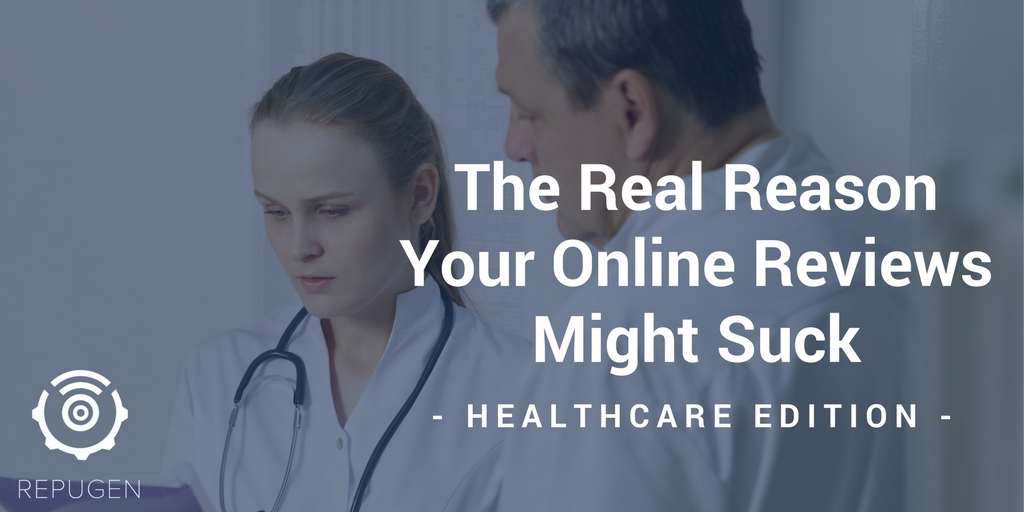
As a practitioner, your (online) reputation is everything. Consider this:
The impact of your online reputation is immeasurable. If your ratings aren’t high, you’re losing out on new patients, plain and simple. Often, the picture painted by your Yelp reviews isn’t an accurate representation of your practice and how it operates. We all agree that negative reviews are destructive and sometimes unfair, but have you noticed that it’s mostly the unhappy patients writing reviews about you online? Due to a lackluster 2-star average rating left by displeased patients, a prospect patient will look at your Yelp or HealthGrades page and instantly click to your higher-rated competitor down the street, because who trusts a physician with a 2-star rating?
But where are your happy patients? They’re clearly the majority, so why aren’t they writing about their positive experiences online? There’s a very rational explanation for this: a doctor visit isn’t sexy. It’s personal and either out of routine or out of necessity. A regular visit to a physician isn’t like dining at that buzzing new French restaurant on Main Street – in almost every positive scenario, it just isn’t worth talking about.
Human psychology dictates that unhappy patients (the minority) will outlet their negative experiences in the most visible way possible: on a public stage. On the other hand, the satisfied patients (the majority) will go about their day without talking about their doctor’s visit because it was exactly what they expected. Nothing less, nothing more. That’s the real reason your online review scores suck. Your unhappy patients are more vocal than your happy ones, and it’s tipping the scale against you. Fortunately, it’s easy to reverse your negative-review misfortune and get a leg up on your competition. Here’s the key to regaining control of your online reputation: be proactive – never reactive.
See the difference between the two? A proactive practice will address two pain points in a single action:
By being proactive, your positive online reviews will dominate, portraying your business accurately instead of the distorted reality painted by numerous negative reviews. You won’t have to worry about the next negative review that chips away at your practice’s reputation – you’ll be confident that happy visits are converted into positive reviews, and negative visits are interpreted as opportunities to improve your patient care. You’ll be in full control of your online reputation and your patient care. But if you’re a reactive practice? Well, you’ll have to settle with the hand you’re dealt. Want to get your happy patients to talk more online? Learn more about how RepuGen can help here.
0 Comment
Your email address will not be published. Required fields are marked *